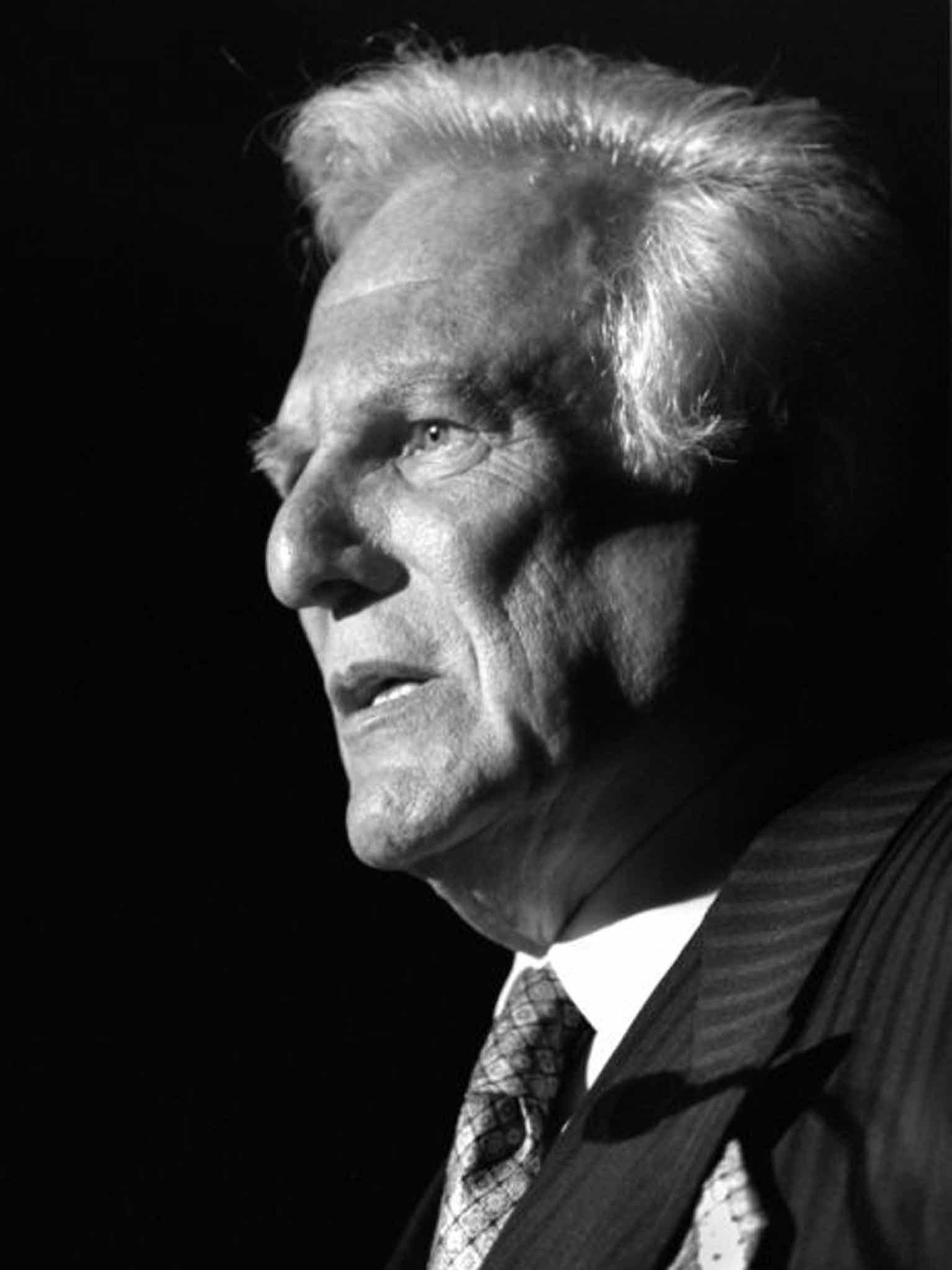Nathaniel Branden: Disciple and lover of the libertarian Ayn Rand until they split tempestuously, who went on to write self-help books
His principles for leading a purposeful life included self-assertiveness, self-acceptance, self-responsibility and personal integrity

Nathaniel Branden became a chief disciple and lover of the writer and libertarian lodestar Ayn Rand until a turbulent falling out led to his new career as a best-selling writer of books on self-esteem. He was a 19-year-old college student in California in 1950 when he sent a note to Rand, the author of his favourite novel, The Fountainhead. She invited him for coffee.
"I reached for the doorbell," Branden wrote in a 1989 memoir, "knowing without words and with irresistible certainty that nothing was ever going to be the same again."
He talked to Rand and her husband, Frank O'Connor, through the night and didn't leave their house until 5:30 the next morning. He soon became part of Rand's inner circle and one of her fiercest advocates. He changed his name from Nathan Blumenthal to Nathaniel Branden, incorporating "Rand" into his new surname.
After moving to New York, Branden and his wife, Barbara, became devoted acolytes of the Russian-born Rand. The Fountainhead(1943) and another of her novels, Atlas Shrugged (1957), became seminal texts of an emerging school of thought that emphasised muscular notions of laissez-faire capitalism, self-interest and "rational egoism", which might be described best by the title of another of Rand's books, The Virtue of Selfishness (1964).
Rand scorned anything reeking of the communism she had seen during her youth in Russia. She was an outspoken opponent of taxes and welfare, which later followers made articles of faith in certain conservative and libertarian circles. Branden helped develop Rand's ideas into a philosophical construct that became known as objectivism. He organised meetings of Rand's supporters in the 1950s, including Alan Greenspan, who later became chairman of the US Federal Reserve Board. In 1958 Branden launched the Nathaniel Branden Institute, which presented seminars on Rand's ideas around the world.
Branden was 24 when he and the 49-year-old Rand began an affair in 1954. Rand insisted that each of their spouses know of the relationship, but otherwise it was kept secret.
"She'd always people her books with strikingly beautiful women who go off on romantic flings with dashing young men," Barbara Branden, who wrote a biography of Rand in 1986, said. "Now, here was Nathaniel, who was superintelligent and handsome, and he worshipped her. So she finally had the chance to play the part of one of her novels' feminine heroes."
Rand told her husband, O'Connor, that he would have to vacate their apartment twice a week while she and Branden had their trysts. O'Connor began drinking heavily. Branden's marriage suffered as well. Finally, in 1968, Barbara Branden revealed to Rand that Branden was having an affair with a third woman.
"Ayn fell into a fury," Barbara recalled. "'I made that pipsqueak,' she shrieked, 'and I'll destroy him!'"
The Brandens were soon divorced, and Branden launched a new career in California. In 1969 he published the first of many books about self-empowerment and love, The Psychology of Self-Esteem, and founded an organisation called the Institute of Biocentric Psychology.
His principles for leading a purposeful life included self-assertiveness, self-acceptance, self-responsibility and personal integrity – all ideals that came directly from Rand.
"At three o'clock in the morning, when we are alone with ourselves," Branden wrote in his 1984 book Honoring the Self, "we are aware that the most intimate and powerful of all relationships and the one we can never escape is the relationship to ourselves."
Nathan Blumenthal was born in 1930, in Brampton, Ontario, and grew up in Toronto. He was attending the University of California at Los Angeles when he met another Canadian, Barbara Weidman, who was also an admirer of The Fountainhead. They moved to New York in 1951 and were married two years later. Branden changed his name in 1954, the same year he graduated from New York University. He received a master's degree from NYU in 1956 and a doctorate in 1973 from the California Graduate Institute, a school that was not accredited at the time by the American Psychological Association.
Branden's complicated relationship with Rand first became widely known in 1986, when Barbara Branden, who died in 2013, published The Passion of Ayn Rand. The book was the basis of a 1999 Showtime film, with Eric Stoltz as Branden and Helen Mirren as Rand.
When Branden's memoir, Judgment Day, was published in 1989, Susan Brownmiller wrote in the New York Times that his youthful infatuation with Rand's writing "lends credence to the canard that too much reading can unbalance a young, impressionable mind."
Branden was known as an enforcer of orthodoxy among Rand's followers, reprimanding anyone who strayed from her tenets. "I became an avenging angel," he wrote in his memoir. " 'This is one of the aspects of you I love most,' Ayn told me, 'the purity of your ruthlessness.'"
Nathan Blumenthal (Nathaniel Branden), author; born Brampton, Ontario 9 April 1930; married 1953 Barbara Weidman (divorced 1968), 1969 Patrecia Scott Wynand (died 1977), 1978 Estelle Devers (marriage dissolved), 2006 Leigh Horton; died Los Angeles 3 December 2014.
© The Washington Post
Subscribe to Independent Premium to bookmark this article
Want to bookmark your favourite articles and stories to read or reference later? Start your Independent Premium subscription today.

Join our commenting forum
Join thought-provoking conversations, follow other Independent readers and see their replies